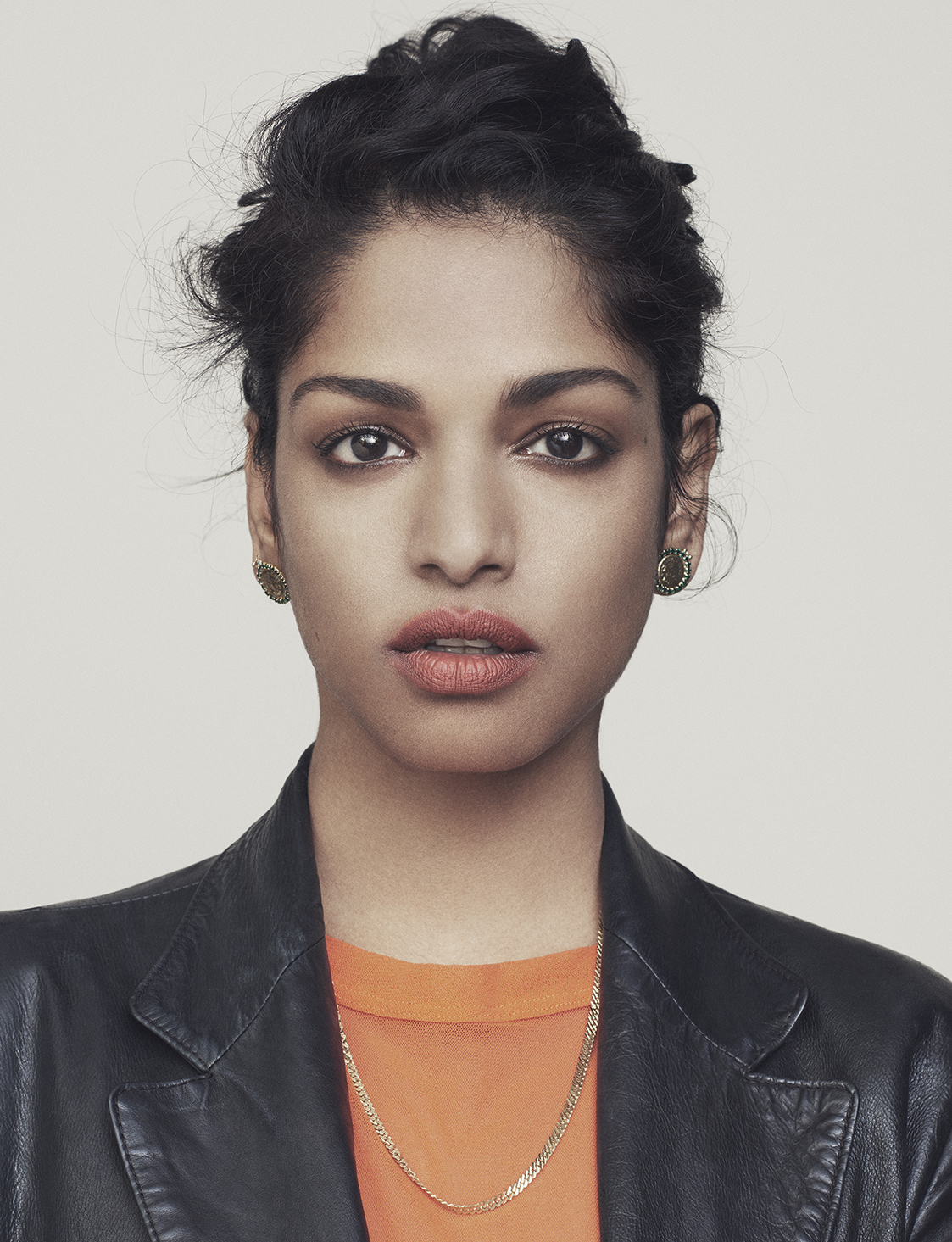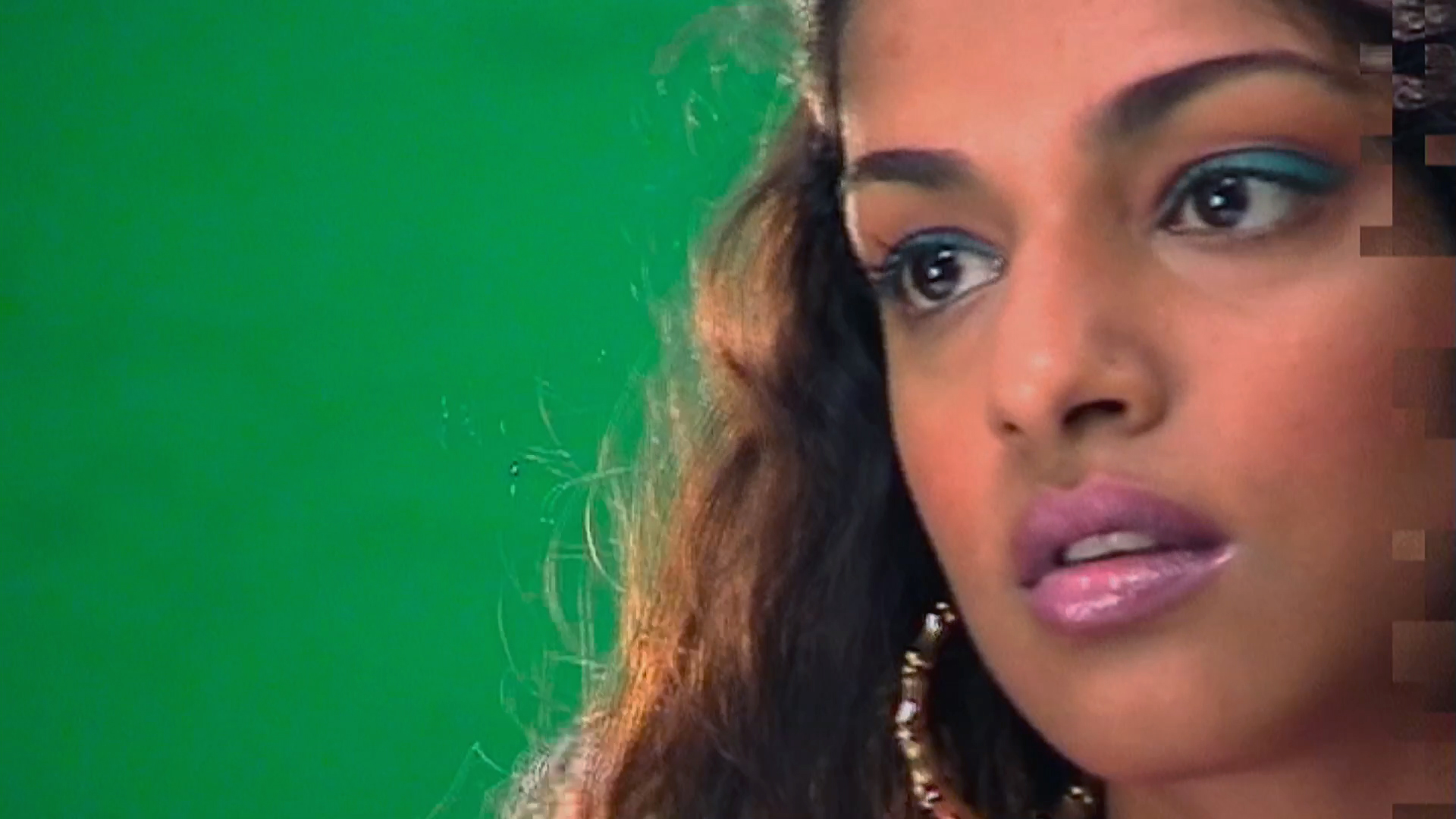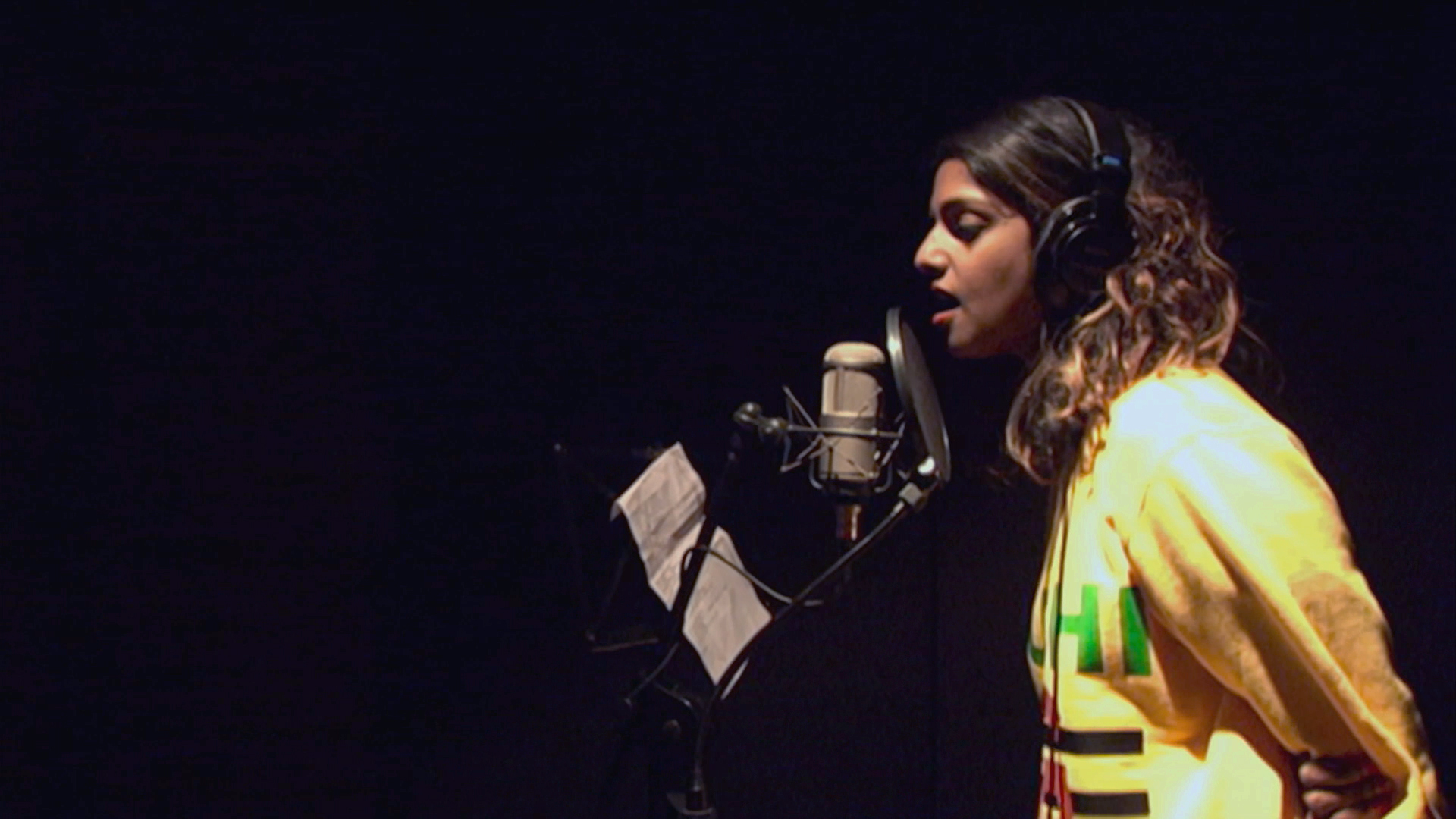Two weeks after interviewing British-Tamil musician Mathangi Maya Arulpragasam, aka MIA, for a new documentary about her life and career by her friend Steve Loveridge, I saw her launch onto the stage at Bestival. Bursting with energy and flanked by dancers against a golden arch backdrop, the singer had complete control over the crowd, her right leg draped in tiger print (a reference to her proud Tamil heritage), with a garland of flowers in her hair. At one point she handed the mic into the crowd to a woman who said, “We aren’t born free, the government controls us, but we own our own destiny. Be what you want to be.” MIA then launched into her 2016 migrant-centric track, Borders. It was a piece of the unashamedly punchy political theatre that MIA has become famous for.
Sitting in a suite in a hotel in Soho, she is no less impressive. Now 43, she has the same energy as she did back in 2004 when she exploded on the music scene with Galang. She’s eager to talk, though not necessarily about the documentary. She’s also reflective. But when there’s a film coming out laying bare your life, the mood seems fitting.

The documentary charts her birth in Hounslow, her move to Jaffna, Sri Lanka, and her return to the UK with her mother Kala (whom she named her second album after) and siblings. Her father, Arul Pragasam (whom she named her first album after) remained in Sri Lanka as a Tamil resistance leader, finally coming to the UK when Maya was in her teens. We see her fall in love with hip-hop, dancing in her bedroom and chatting with her siblings, before going to study at Central St. Martins. She went on to work with Elastica’s Justine Frischmann, before starting her own career as a musician.
“I think that if I had seen this ten years ago, I would have tried to kill myself,” she jokes. “Now we live in an era where everyone posts everything, it isn’t as shocking for me. My story is a weird one. On the one hand I’m glad it’s a real story, and not a perfect little story, like Bend It Like Beckham. And I’m glad it’s not the what-not-to-do Jihadi John story. It’s just a complicated weirdness that opens up scope for people.”
She’s right. Her life story is unconventional, and she has persistently embraced her unconventional identity, refusing to be pigeon-holed. “If you’re from a council flat they say ‘you can’t do this, or you can’t do that’ — they always find a reason. As soon as you break out of one box they have another one waiting for you, and then another, and it’s never going to stop.”
Loveridge does a great job of capturing MIA in all her wilful contradictions and complexity, and she’s not ashamed of it. As an artist whose music is a tool to deliver her political message, she’s not concerned about conforming to polite, politically correct conventions. It’s about action and change. Her passion for activism concerning the plight of Tamils in Sri Lanka, the refugee crisis, and immigration is palpable. “I want to make things a bit more complicated for people,” she says. “I don’t want to feed them a five-second gif of a lip injection and say I’m winning at life. I like the complications now. You can’t control it, you can’t put yourself in the frame of Instagram and say that’s me.”

She begins to talk about her dad, Arul. “My dad always used to say, in a democracy, it’s about arming everyone with the tools, and giving everyone the possibility of expressing their opinions. And when that day is possible, it’s going to be complete chaos.” She adds, “We’re living in that now.”
The conversation turns to her background. “When you are a refugee or an immigrant, you straddle two cultures,” she says. “I’m the oppressed and the oppressor at the same time.” She feels society is ill-equipped to tackle the complex issues surrounding identity politics and immigration. “You used to be able to ask very complicated questions. You used to be able to cover these complicated issues through films, books, music, and music videos. Now we have to simplify everything because everything has to be bite-sized. We now have a twelve-second attention span now — a goldfish has six.”
Social media and the internet come up often in the conversation. She’s tired of a plastic culture that aims to oversimplify life and is too in love with reality TV. “Steve told me a very frightening thing yesterday, that they have found out that your career prospect is better if you go on Love Island than if you went to Oxbridge to study something.” She’s evidently concerned. “Young people from every walk of life are now dealing with reality TV rather than Oxbridge as the dream. It’s weird putting out this documentary at a time where reality TV is an everyday thing for people.”
She pauses to reflect. “At the same time we have somehow ironed out individuality, where every girl looks the same, every pop star is the same too. Get the lip injections, get the Botox and suddenly you are perfecting yourself for this one app that’s going to go out of fashion in five years.” She adds, “You know those Japanese plums to cleanse your palate? We need one of those for reality and to start again.”

How does she think audiences will react to the film? “This documentary is that palate cleansing thing. You can be who you are, and not compromise,” she says. “Even when they constantly bash you, you can be as complicated and weird as you want, be as poor as hell, and do all of these things and still go take on America, have the shit thrown at you and be okay.”
